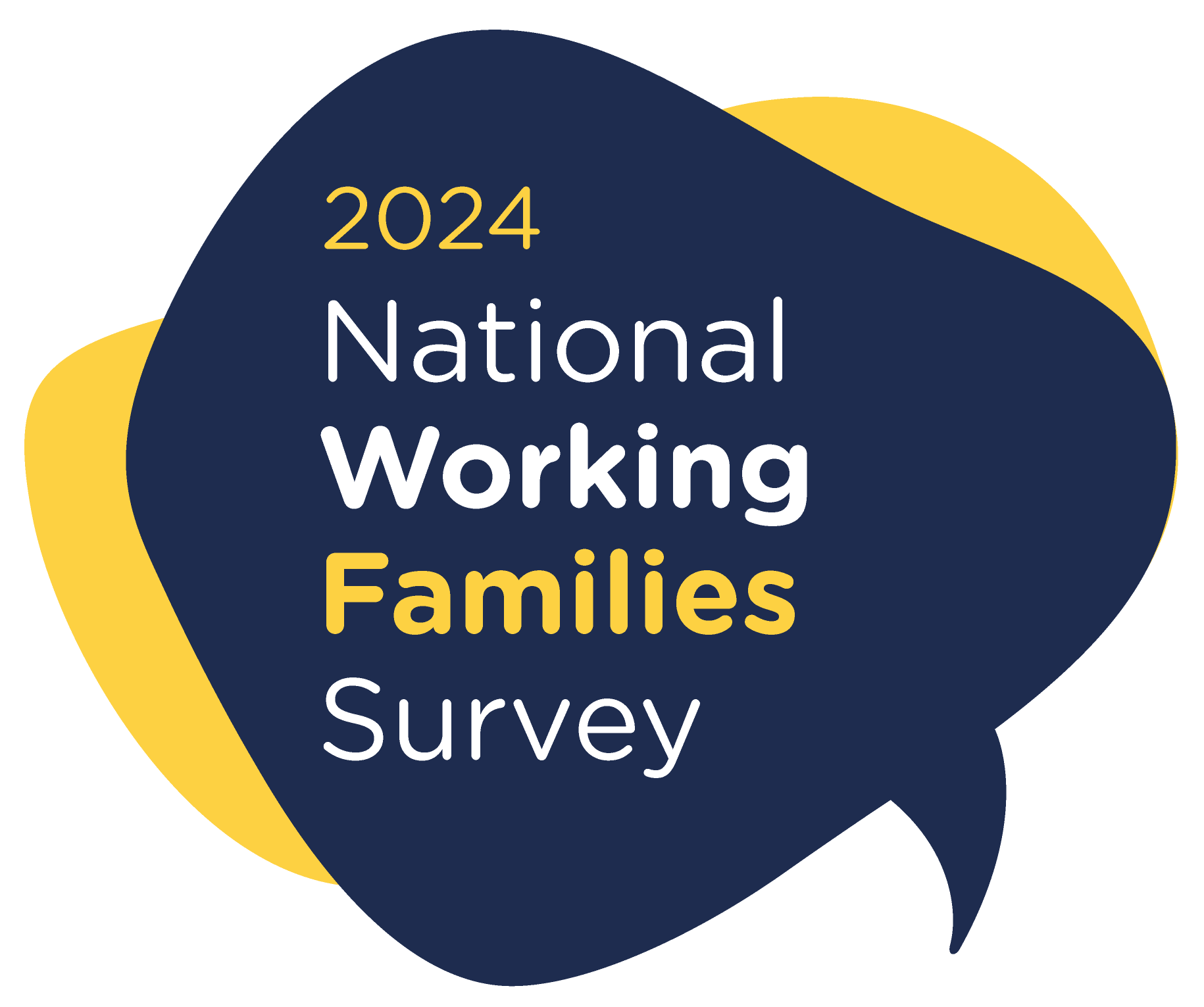MEDIA RELEASE
The 2024 National Working Families survey uncovers the experiences of Australia’s working parents and carers in balancing work and family commitments – and how it compares to five years ago.
Read the Executive Summary and Key Findings.
Key Points
- Stress balancing work and family commitments has increased for men and women, overall, but felt more acutely among women
- The biggest challenge for parents and carers balancing work and family commitments remains looking after their physical and mental health
- Results suggest workplace cultures are still geared towards supporting men as the primary income earner and women as the primary caregiver
- However, employees in certified workplaces are more satisfied with their work-life balance and experience fewer negative consequences from working flexibly
8 May 2024 (Sydney, NSW) – Despite efforts to progress gender equality in workplaces, concerning new research reveals that challenges for working parents and carers to balance competing work and family pressures have not shifted much in five years, with the stress being more felt by women.
The results found working families are more stressed than ever, and it is felt more acutely among women: over 74 per cent of women felt stressed balancing work and family commitments, compared with 57 per cent of men – a marked increase from the 51% of women and 34% of men who reported feeling stressed in 2019.
The initial findings come from a new national study of more than 6,200 Australian working parents and carers for the soon-to-be-released 2024 National Working Families Report. The survey sought to understand the experiences of working parents and carers in balancing work, family and personal commitments, and respondents provided feedback on how workplaces could be more family-friendly.
Findings were compared with the 2019 survey to gauge changes in the face of the global pandemic and the emergence of remote and flexible working in the mainstream. However, there are positive signs that investment in family-inclusive policies do make a difference – parents and carers who work for certified Family Friendly Workplaces reported less negative impacts and were more satisfied with their work life balance. Other key insights included that certified workplaces are more accepting of men utilising entitlements.
The National Working Families survey was commissioned by Parents At Work, a social-impact advisory and learning provider, and UNICEF Australia. The survey was conducted by Deloitte Access Economics and supported by corporate and community partners including QBE, The Parenthood and Karitane.
The survey results also highlight the effect of gender norms underpinning family-friendly policies and workplace attitudes, with workplace cultures still geared towards supporting men as the primary income earner and women as the primary caregiver. Nearly half (48%) of men were found to take less than one month of parental leave for their last child, while nearly all women (91%) take longer than four months. Further, the most common reason cited by men for taking too short a paid parental leave period was that they were not eligible for longer based on their employer’s policy, at 51 per cent.
CEO of Parents At Work Emma Walsh, says the results reveal more needs to be done to support working parents and carers in achieving work-life balance. “In trying to strike the balancing act and rise to the pressures and commitments working families face, it is evident that this is not being noticed enough by workplaces.
“The findings reveal there is still a significant skew towards women bearing the majority of the caring load and household duties, nearly double that of men, despite working similar hours to them. Women are still seen as the traditional caregiver over men, evident in the unequal parental leave policies for men and women.
The results suggest workplace cultures are geared towards supporting men as the primary income earner and women as the primary caregiver to the disadvantage of both men and women.
All of these factors are having a detrimental impact on working families, particularly women. It’s having a significant impact on their physical and mental health, cited as the top difficulty for parents and carers outside of the workplace. In the face of such stark evidence, the time is now for Australian workplaces, policy makers and other stakeholders to pull in the same direction to turn these alarming trends around.”
Chief Advocate for Children at UNICEF Australia Nicole Breeze says: “Over the past year there has been a lot of debate about what the new normal for workplaces should look like – with some reverting to pre-COVID life of fully back in the office and others granting flexibility, but with grey boundaries that can make employees feel like they’re ‘always on’ or being judged. The results of these things are clear – it’s really disappointing to see that employees, particularly women, are more stressed than ever, and this is feeding into family life.
“Life as a parent is really hard when you’re worried that your job commitment is being questioned, or too drained to contribute to your family when you get home from work. “We know that family friendly policies such as flexible work and parental leave are valuable for the wellbeing of working parents and their children, but we must make these more accepted and the norm in workplaces, for men and women. It is good for gender equality, and by supporting the wellbeing of parents and carers we can safeguard the wellbeing of the children or loved ones in their care – to be happy, healthy and safe.”
CEO of The Parenthood Georgie Dent, says: “Despite improvements, the survey findings highlight that we still have a long way to go in effectively supporting families. Our policies must catch up to the realities faced by working parents, ensuring they don’t have to choose between their family and their career. For parents, carers, and our children to truly thrive, we need one year of paid parental leave to be shared between parents at full pay, including super, and universal access to affordable early childhood education and care, delivered by a well-supported and properly paid workforce.”
ENDS
Media Contacts
Macrina Lim, [email protected] +61 430 547 751
Nicki Ferguson [email protected] +61 425 572 774
Jessie Aldrich, UNICEF Australia, [email protected] +61 425 723 490
About Parents At Work
Parents At Work is a social impact global advisory group providing work and family care solutions to businesses to create family-inclusive workplaces. Since 2007, they have provided over 800,000 families in their workplaces with vital family, career and wellbeing services. In Australia, Parents At Work partners with UNICEF Australia, industry leaders and community organisations to improve gender equality, flexible working and work life wellbeing outcomes. Family Friendly Workplaces, a joint initiative by Parents At Work and UNICEF Australia, encourages employers to adopt family-inclusive policies and has benchmarked and certified ASX 200 companies, government agencies and not-for-profits across 17 industry sectors on their family-inclusive policies progress including Commonwealth Bank, Deloitte, QBE, Novartis, Randstad RiseSmart, ING, Microsoft, Medibank, APRA, HESTA, KPMG, Norton Rose Fulbright, oOh!media, PEXA, Volvo and Genea.
About UNICEF Australia
UNICEF operates in more than 190 countries in some of the world’s toughest places to reach the most disadvantaged children. UNICEF Australia works with local partners to raise children’s voices, defend their rights, and help them reach their potential at all stages of life, here and in neighbouring countries. We rely entirely on voluntary donations to provide lifesaving support; improve maternal and child health, education, and nutrition; and to respond to global emergencies.
For more information about UNICEF Australia and its work for children, visit www.unicef.org.au
Follow UNICEF Australia on Facebook, X and Instagram
About the 2024 National Working Families Survey
Parents At Work and UNICEF Australia released its inaugural National Working Families Report in 2019, which reported on the difficulties experienced by working Australian parents and carers in balancing their work and family commitments, with their personal wellbeing and family relationships suffering as a result. Five years on, the 2024 National Working Families Survey sought to understand whether behaviours and perceptions have changed as a result of the impact of changing workplace trends. More than 6,200 working Australian parents and carers participated in the survey, developed in consultation with key partners including Deloitte Access Economics.

